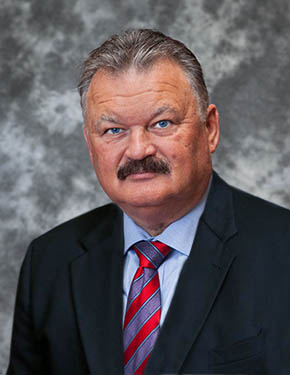
Trump's new bill gives biogas two more years to prove it belongs in America's clean energy mix. The tax credit extension runs through 2029, creating a longer runway for an industry that turns farm waste into pipeline-quality natural gas.
- Market Size: $15.20 billion in 2025, projected to hit $26.57 billion by 2032
- Tax Credit: Section 45Z extended from 2027 to 2029
- Feedstock: Animal manure, crop residues, agricultural waste
- Potential: Could supply up to 17% of U.S. natural gas demand
The extension affects production from agricultural waste like animal manure and crop residues. Materials that farms typically dispose of as waste can now generate revenue for two additional years under federal tax support.
Industry reaction has been largely positive, with companies like Roeslein Renewables highlighting the policy certainty for project planning.
What This Tax Credit Actually Covers
The tax credit covers renewable natural gas produced through anaerobic digestion of agricultural materials. Qualifying feedstocks include:
- 🐄 Pig, cattle, and poultry manure
- 🌾 Crop residues like cereal rye and winter cover crops
- 🌱 Perennial prairie grasses
- 🚜 Other cellulosic biomass from farming operations
The policy was originally set to expire in 2027 but now runs through 2029. This provides a longer investment timeline for developers and farmers considering biogas projects.
>> In Other News: Chloris Geospatial Raises $8.5 Million Series A to Scale Satellite-Based Forest Carbon Monitoring

Who's Already Cashing In?
Roeslein Renewables has positioned itself as a leader in agricultural biogas development. Their Horizon II project with Sievers Family Farms operates on a 728-hectare corn and soybean farm with 2,400 head of cattle.
The operation converts waste into pipeline-quality natural gas. The company has achieved ISCC PLUS and ISCC EU certifications for biomass feedstocks, marking the first international certification for biomass-based crop residues processed for RNG.

"The law will accelerate investments in the anaerobic digestion sector using biomass on American agricultural operations."
— Bryan Sievers, Director of Government Relations, Roeslein RenewablesResearch Partnerships Build Credibility
Roeslein Renewables works with Penn State University and Iowa State University on projects funded by the USDA.
The research documents environmental benefits beyond energy production. These include reduced nitrogen and phosphorus runoff and improved soil health.
The USDA supports these efforts through a five-year, $80 million pilot project in Iowa and Missouri. The initiative works with 14 public and private entities to create markets for agricultural producers through renewable natural gas production.
Market Potential and Reality Check
Key Stat: RNG from agriculture could supply up to 17% of U.S. natural gas demand according to industry white papers. This assumes widespread adoption of anaerobic digestion technology.
The American Biogas Council reported $1.8 billion in new project investments last year. This marked the third consecutive year of record growth.
However, the industry still faces significant challenges that could slow expansion. Despite momentum, RNG faces hurdles including high upfront costs, inconsistent permitting rules across states, and growing scrutiny over methane lifecycle emissions.
Infrastructure development remains uneven. Pipeline access is limited in many rural areas where feedstock is abundant.
Why This is a Win for Farmers
Agricultural operations generate substantial waste that traditionally costs money to manage. Biogas systems can convert this liability into revenue while addressing environmental concerns about methane emissions from livestock operations.
Financial Benefits for Agriculture:💵 New income from waste materials🔒 Diversified revenue streams🌎 Reduced waste management costs🧑🌾 Job creation in rural communities

"The main objective is to offer farmers an economically viable alternative for cultivating their most erosion-sensitive land."
— Rudi Roeslein, founder and chairman, Roeslein Renewables
The economics work best for larger operations with consistent waste streams. Smaller farms may need to participate in cooperative arrangements or regional facilities to achieve viable scale.
Policy Context and Uncertainty
The extension provides stability in a sector that has experienced volatile policy support. Tax credits for renewable energy have been modified, reduced, or eliminated multiple times over the past decade.
This creates uncertainty for long-term investments. The biogas industry benefits from bipartisan support due to its agricultural constituency and domestic energy production, but future policy changes remain possible.

Source: REPEAT Project | R. Cyran | July 8, 2025
Modeled impact of Trump’s proposed bill on U.S. clean power capacity additions (gigawatts/year)
The 2029 expiration date means the debate will likely resurface during the next administration. Anaerobic digestion technology is proven and commercially viable, but widespread adoption still depends on infrastructure development, permitting processes, and continued policy support.
State-level regulations vary significantly, affecting project timelines and costs.
Current Market Dynamics
The biogas sector competes with other renewable energy sources for investment capital and policy attention. Unlike solar and wind, biogas provides consistent energy output and can utilize existing natural gas infrastructure.
However, it requires more complex feedstock management and processing. International markets are also expanding rapidly.
The EU has aggressive biomethane targets, and certification standards like ISCC are becoming prerequisites for global trade. U.S. producers with proper certifications can access premium markets where sustainability credentials command higher prices.
What Comes Next for Biogas in the U.S.?
The tax credit extension creates a defined window for industry development through 2029. Three factors will determine how much the sector grows:
Investment Confidence: The policy certainty helps project developers secure financing and plan multi-year buildouts. Banks and investors can now underwrite projects with clearer revenue projections.
State-Level Implementation: Federal credits work alongside state policies, but permitting, interconnection rules, and environmental regulations vary significantly. States with streamlined processes will likely see faster development.
Infrastructure and Scale: The industry needs pipeline access, processing facilities, and aggregation systems to handle distributed feedstock sources. Companies that can solve these logistics challenges will capture the most value from the extended tax support.
Subscribe to the newsletter
Daily decarbonization data and news delivered to your inbox
Follow the money flow of climate, technology, and energy investments to uncover new opportunities and jobs.
Latest issues
-
What Do Submarines Have to Do With Hydrogen?
Inside This Issue 🚢 Hyundai Pitches Hydrogen Transport Tied To Canada Submarine Bid 🧱 The LEGO Group Expands Its Portfolio Of Carbon Removal Solutions 🏆 SAF Pioneer LanzaJet Honored With RFA Indus...
-
This $4.1M Deal Could Change Carbon Capture's Playbook
Inside This Issue 🗜️ CarbonQuest Lands $4.1M Alberta Deal on Gas Compressors 🛡️ CADO, 123Carbon, and Assure SAF Registry Join Forces to Tackle SAF Integrity Gaps ✈️ ISCC, OMV, and Airbus Partner t...
-
Can Koloma Crack Iowa's Billion-Year-Old Secret?
Inside This Issue ⛏️ Iowa's Hydrogen Rush: Can Koloma Strike Gold Before Rules Kick In? ✈️ Bentley Commits to Use 100% Sustainable Aviation Fuel for Car Airfreight 🌬️ Minister Parrott Provides Upd...
Company Announcements
-
CHIFENG, China, Feb. 27, 2026 /PRNewswire/ -- Envision Energy launched the first global shipment of green ammonia from Chifeng, Inner Mongolia to LOTTE Fine Chemical, a premier chemical company in ...
-
SAF Pioneer LanzaJet Honored With RFA Industry Award
Pioneering sustainable aviation fuel producer LanzaJet received the Renewable Fuels Association’s 2026 Industry Award at the National Ethanol Conference in Orlando this week. Last year the company ...
-
Houston Hosts World Hydrogen North America 2026 Industry Gathering
Hydrogen is one of the energy sources that has evolved the most when it comes to how developers plan and execute projects. The main reason for this is the advanced technology that has penetrated th...
-
Trump EPA Eyes Reallocating Waived Biofuel Obligations To Refiners: Report
The question of whether to reallocate those exempted blending obligations to larger refiners is a point of contention between the agriculture and fuel industries The Trump administration has settl...